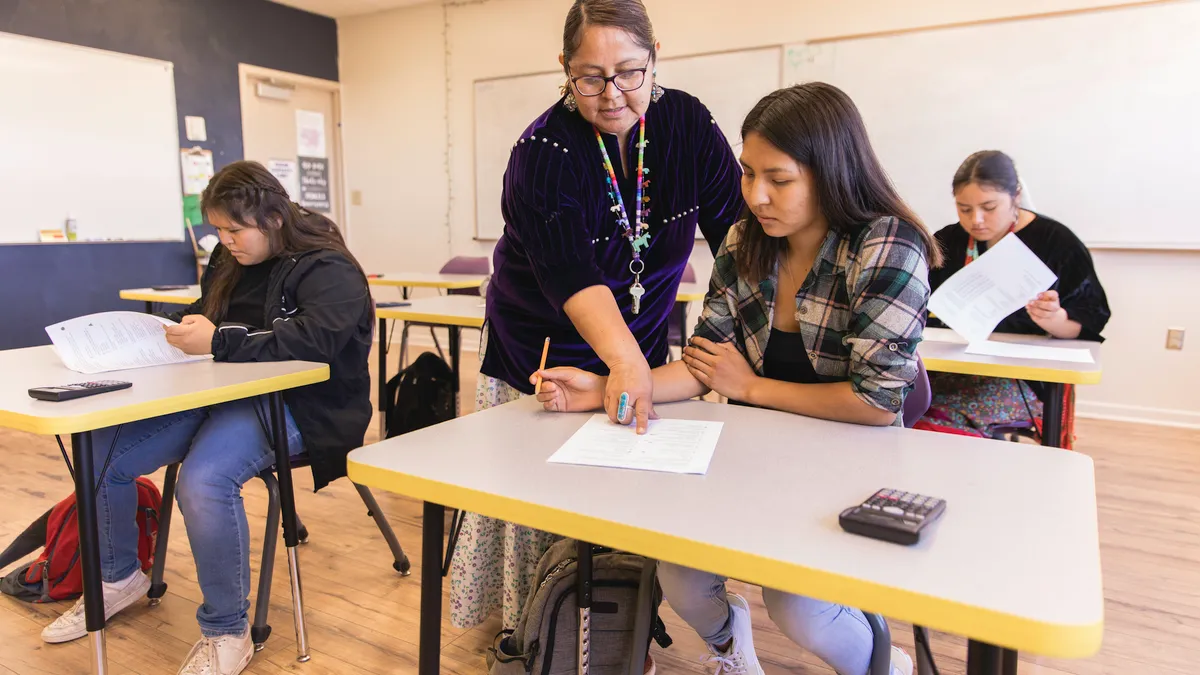Dive Brief:
-
Building rapport with students can be an important element of classroom learning that helps students develop more trust in their teachers and peers while increasing engagement in lessons.
-
But Heather Schwartz, practice specialist at the Collaborative for Academic, Social and Emotional Learning, said creating rapport with pupils is only one step to building “strong relationships.”
-
Once rapport is established, Schwartz said, educators can use that connection to “challenge students to work up to their potential, set boundaries, include students in decision-making, and celebrate their successes. Rapport can set this process in motion.”
Dive Insight:
“Building rapport — which I define as a sense of connection and friendliness — is important, but it’s not enough,” said Schwartz. “Being warm and welcoming, listening to students wholeheartedly, and expressing positive regard all help to build rapport, which in turn builds trust — the backbone of a safe and supportive environment where students can share who they are and what they care about, knowing they will be received generously.”
There are many ways to build and create rapport within the curriculum, noted Schwartz. That can include having educators ask students about areas that pique their interest and even ascertaining areas of expertise they may have. This can help students feel more of a link to their teacher and peers, and that they are part of a learning community.
But before building rapport with learners, educators should ensure they have “a strong level of self-awareness,” said Schwartz.
“An educator with strong self-awareness will recognize the specific kinds of behaviors that provoke them and how they tend to respond when they’re stressed,” said Schwartz. “Building strong relationships also requires social awareness to recognize that, just like us, students are not at their best when they are stressed or tired, and to try to extend compassion.”
Educators should also remember when building rapport with students that the end goal is not to develop a connection between themselves and their pupils, but to develop a connection between students and their peers.
“It’s important to remember that building rapport with and among students is not about creating a cult of personality,” said Schwartz. “I know I’m doing a good job not when my students like me, but when they like each other, or at least treat one another with care. That is when they become true partners on their learning journey.”





 Dive Awards
Dive Awards







